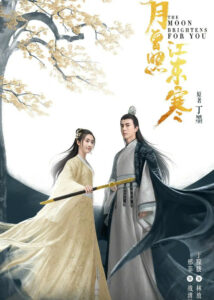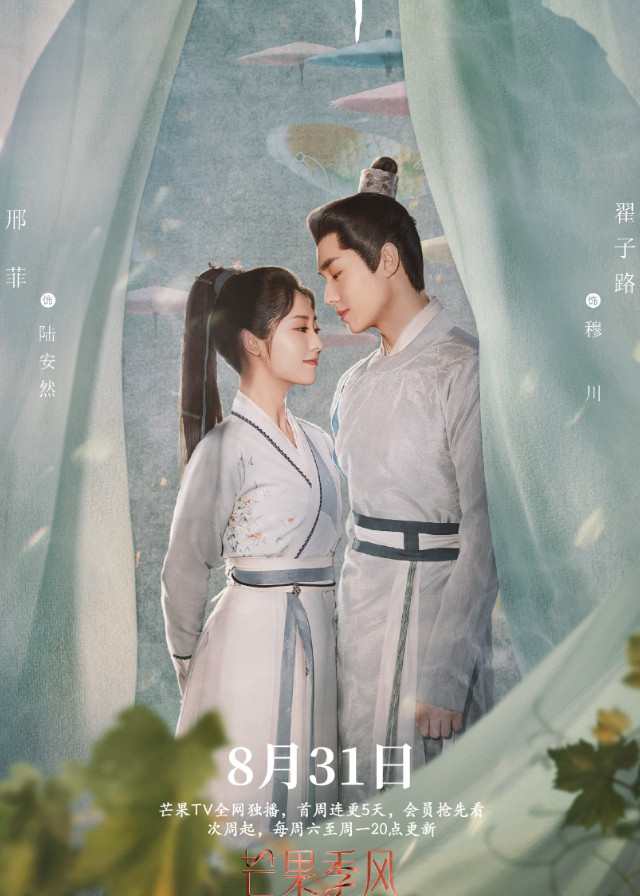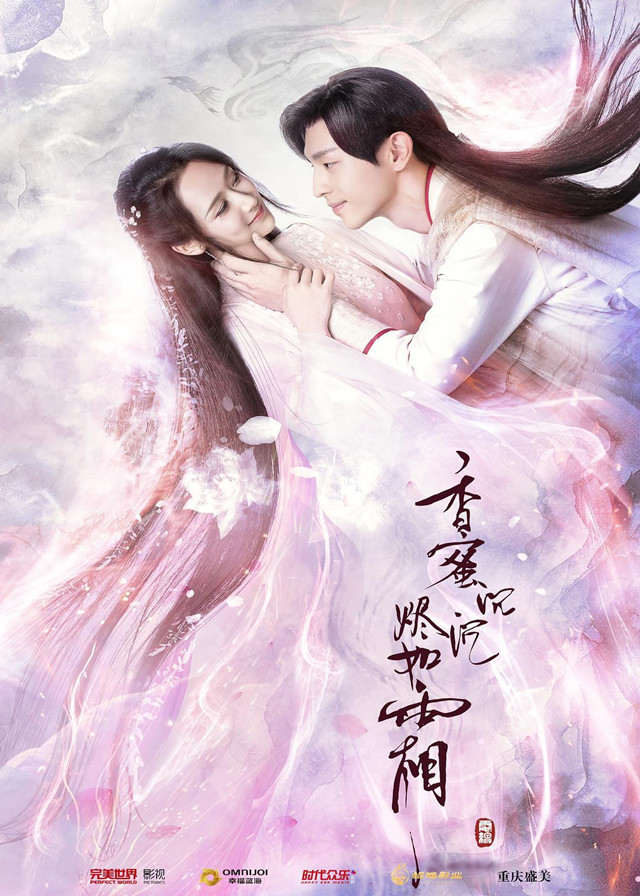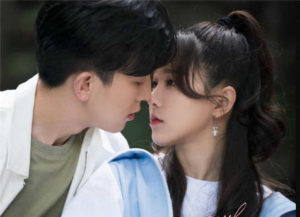Lost Track of Time Episode 10 Recap
> Lost Track of Time Recap
Mu Ze brought Gao Chengxian before him, telling him that if he could prove useful, his crimes might be overlooked. Desperate for survival, Gao Chengxian offered to be Prince Yi's informant, helping Prince Qing achieve his great cause.
Mu Ze seemed satisfied with his choice but had Gao Chengxian's arm dislocated as a warning, reminding him that the Lu Family and Prince Qing's Mansion were interconnected, and some people were not to be touched, especially after Gao Chengxian's prior schemes against Lu Anran. Although the Lu family's false accusation had been cleared, Mu Chuan still struggled to understand Mu Ze's decision to release Gao Chengxian.
He questioned why Mu Ze would disregard Gao Chengxian's numerous crimes, including the embezzlement of funds that harmed Danzhou's civilians, for some perceived utility. Mu Ze then showed Mu Chuan a ledger detailing transactions between Prince Yi and Qin Yekuo. He explained that the armies under Qin Yekuo's command were essentially Prince Yi's personal coffers, with funds continuously siphoned off from locals to Prince Yi.
Killing Gao Chengxian now, Mu Ze argued, would only alert others, forcing them to conceal their corruption more deeply and making a thorough investigation impossible. He intended to save Gao Chengxian's life temporarily to completely eradicate military corruption, which he saw as shaking the country's foundation. Mu Chuan, however, was still greatly distressed by the suffering of the innocent people under Gao Chengxian's tyranny.
Soon after, news arrived that heavy rains had washed away the mountain roads leading into the city, and the relief grain convoy from Yizhou was buried in mudslides. Mu Ze ordered Gao Chengxian to gather all soldiers and divide them into two groups: one to stabilize the mountainside to prevent further landslides, and the other to rescue victims. Mu Ze assured Mu Chuan that Gao Chengxian would still face all his deserved punishments, but Mu Chuan, visibly angry, left.
Lu Anran brought Mu Chuan cold prevention medicine, ensuring he drank it. She urged him not to harm himself, even when upset. Mu Chuan felt ashamed to face the Danzhou civilians and even Lu Anran herself, knowing Gao Chengxian had been released without immediate punishment. Lu Anran reminded him that Mu Ze was Mu Ze, and he was himself, and he shouldn't bear responsibility for his brother's decisions.
She stressed that while many things in the world could be flexible, the lines between right and wrong should never be blurred. She encouraged Mu Chuan to remain true to his convictions, warning that if Mu Ze continued down a path he couldn't agree with, their paths would diverge beyond repair. Lu Anran then visited Chai Guang in prison.
She informed him that Prince Qing intended to name him the sole mastermind of the relief grain robbery, which was a capital offense that would also bring shame and ruin to his family. She offered him a deal: if he cooperated by revealing the truth, she would ensure his family's safety, wealth, and peace. Chai Guang agreed.
The next morning, Mu Chuan, identifying himself as the Ninth Prince of Dahan Dynasty, stood in the streets of Danzhou, calling for the people to join him in accusing Gao Chengxian. He highlighted Gao Chengxian's history of atrocities, exploiting civilians, and breaking families. Acknowledging their fear and despair, Mu Chuan vowed that if Gao Chengxian remained free for a day, he would stay there for a day, personally guaranteeing their safety if their efforts failed.
Inspired by his unwavering determination, many civilians stepped forward, declaring their willingness to follow him. Meanwhile, Chai Guang, having been released from prison, confronted Gao Chengxian, kicking him off a balcony in a fit of rage. Chai Guang publicly accused Gao Chengxian of betraying their agreement to share responsibility for the relief grain robbery and demanded to speak with Prince Qing. When Mu Ze arrived, he rebuked Chai Guang for seizing a court official.
Chai Guang, unafraid of death, then publicly exposed Gao Chengxian as the true instigator of the famine relief theft. Under threat, Gao Chengxian confessed, detailing how he provided the imperial court's food transport route, instructed Chai Guang to impersonate a river bandit to steal and sell the food, and how they split the profits 70-30. The enraged crowd demanded Gao Chengxian's execution. Mu Ze, however, claimed this was insufficient court evidence.
At that moment, Shen Changqing appeared and executed Chai Guang, declaring he was "cleaning house" for the Qinghe Gang and trusting Prince Qing to deliver justice for the people. Faced with overwhelming public indignation, Mu Ze had no choice but to order Gao Chengxian's detainment. Moments later, Mu Chuan arrived with a multitude of Gao Chengxian's victims, who began to detail his numerous crimes and their suffering.
Mu Chuan passionately listed Gao Chengxian's three monstrous crimes: first, neglecting river pirates while extorting protection fees from merchants, causing Danzhou's trade to collapse; second, raping innocent women, torturing those who resisted, and publicly killing their rescuers; and third, embezzling court funds, colluding with criminals, and raising food prices, leaving Danzhou's civilians to starve. He pleaded with Prince Qing, in his capacity as an imperial envoy, to execute Gao Chengxian immediately. The crowd echoed his demands, forcing Mu Ze's hand.
Despite Gao Chengxian's desperate pleas, reminding Mu Ze of his promise of protection, Mu Ze drew his sword and executed Gao Chengxian on the spot. The civilians praised Prince Qing's wisdom. Later, back at the manor, Mu Chuan apologized to Mu Ze for forcing his hand in public. Mu Ze acknowledged Mu Chuan's hotheadedness but said, "You are my brother. How can I be angry with you?" He forgave him.
With the Danzhou affair concluded, Mu Chuan and Lu Anran made plans to reunite in Hanjing. Mu Ze, on his journey back to the capital, was ambushed by assassins. His loyal subordinate, Zhaolie, sacrificed himself to protect Mu Ze, his dying words being a warning to "watch out for Prince Yi." The evidence related to Prince Yi and Qin Yekuo that Mu Ze had gathered was destroyed in the burning carriage.
This incident solidified Mu Ze's resolve to bring down Prince Yi. In Hanjing, Mu Ze reported to the Emperor on Gao Chengxian's execution and hinted at Qin Yekuo's negligence, requesting a thorough investigation. Prince Yi immediately countered, stating Qin Yekuo was his uncle and implying Mu Ze was attempting to undermine him. The Emperor rewarded Mu Ze for his work in Danzhou but merely ordered Qin Yekuo to conduct a self-inspection within his own jurisdiction, showing no deeper suspicion.
Following this, Mu Chuan presented his "National Granary" plan to the Emperor, showcasing a new, robust cereal he had cultivated that yielded much more than standard crops, even under harsh conditions. He explained how, with widespread water conservation, this could ensure prosperity. The Emperor was greatly pleased by Mu Chuan's dedication and non-political demeanor. He decreed that Mu Chuan would set the questions for the Spring Imperial Exam and select talents for himself.
Prince Yi objected, calling Mu Chuan an "idle prince" unfit for such responsibility. In response, the Emperor publicly named Mu Chuan as Prince Qi, entrusting him with agriculture and water conservation, and bestowed upon him a mansion. After the court session, Prince Yi approached Mu Ze, mockingly asking if he was upset by the Emperor's dismissive treatment of his efforts and favoring of Mu Chuan.
Mu Ze sent Mu Chuan away and then sought a private audience with the Emperor, arriving in his inner clothes and revealing his recent assassination wound. He again tried to press for action against Prince Yi and Qin Yekuo, but the Emperor remained unyielding. The Emperor warned Mu Ze against using his injury to force a political hand, stating that his intentions were "too anxious" and "revealed."
He also alluded to Consort Liang's secret about Mu Ze's parentage, advising him to simply "be Prince Qing well" and "never consider other things anymore." The Emperor's words and his clear disdain deeply affected Mu Ze. He realized that all his military merits and efforts were futile in gaining the Emperor's approval.
Cai Wangjin approached, reminding him that his true ambition was not for the Emperor's admiration but for a "great cause," to control his own destiny, and to ascend to the "supreme position." Reflecting on Zhaolie's death and the cold, distant nature of royal kinship, Mu Ze concluded that since one person (the Emperor) lacked emotion and another (Prince Yi) sought his demise, there was no reason for him to continue being "prim and proper." He vowed to no longer follow conventional rules and instead pursue his desires.




















